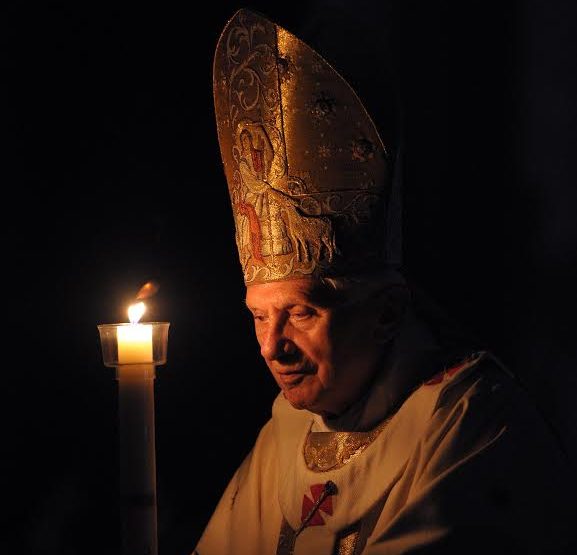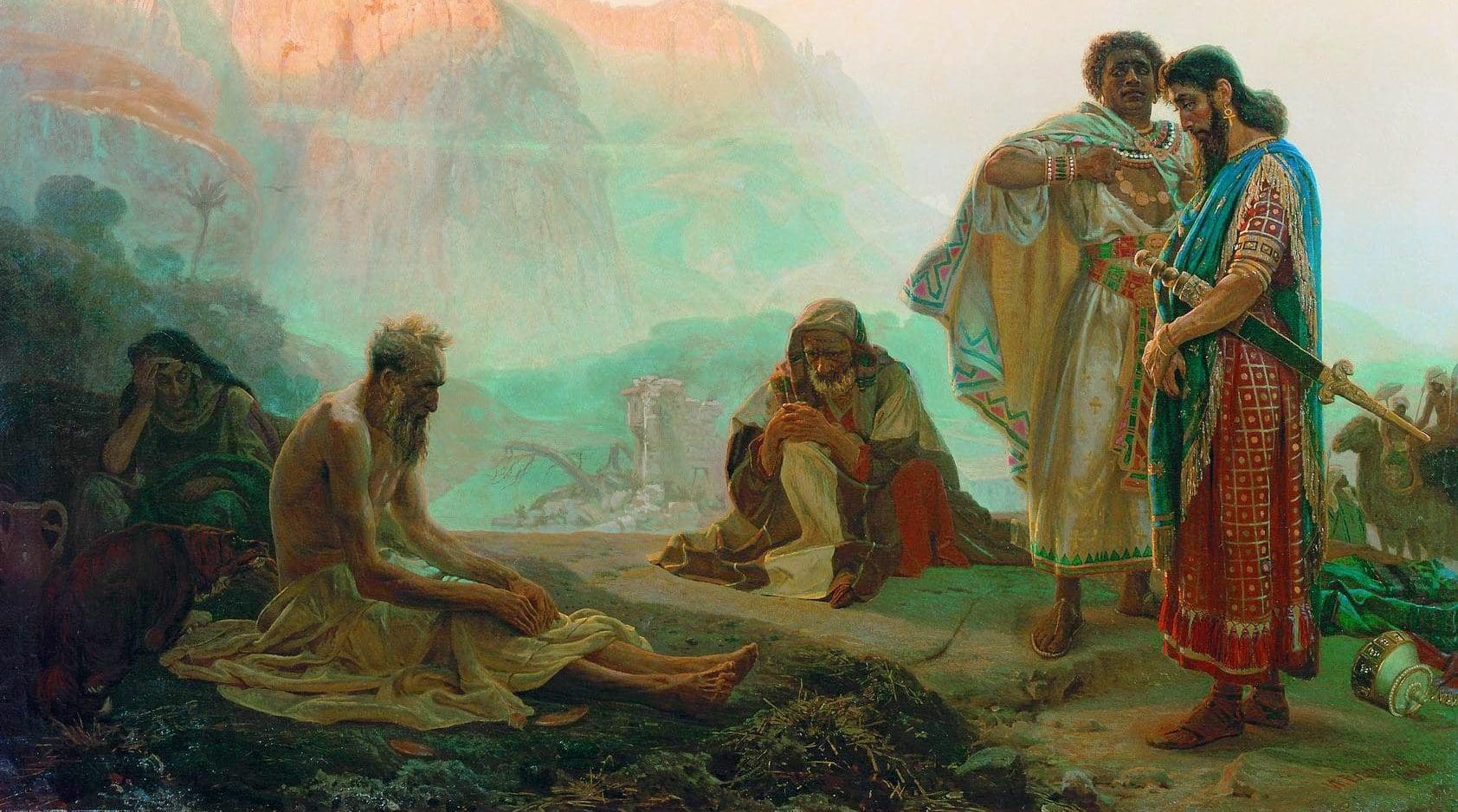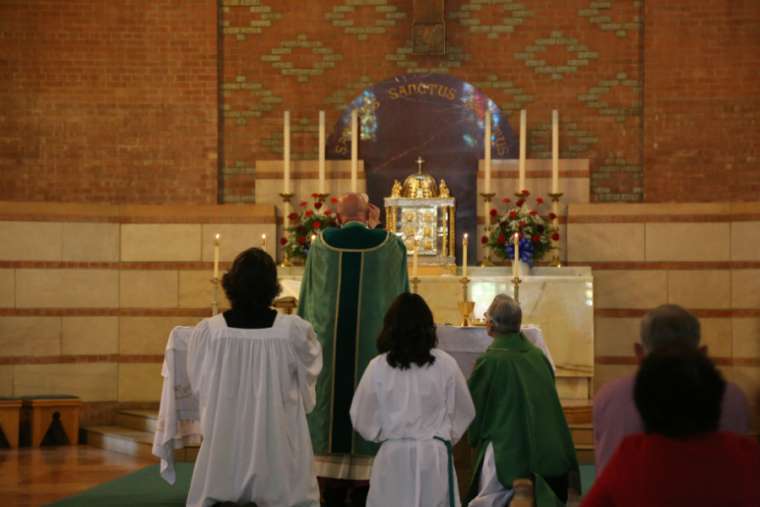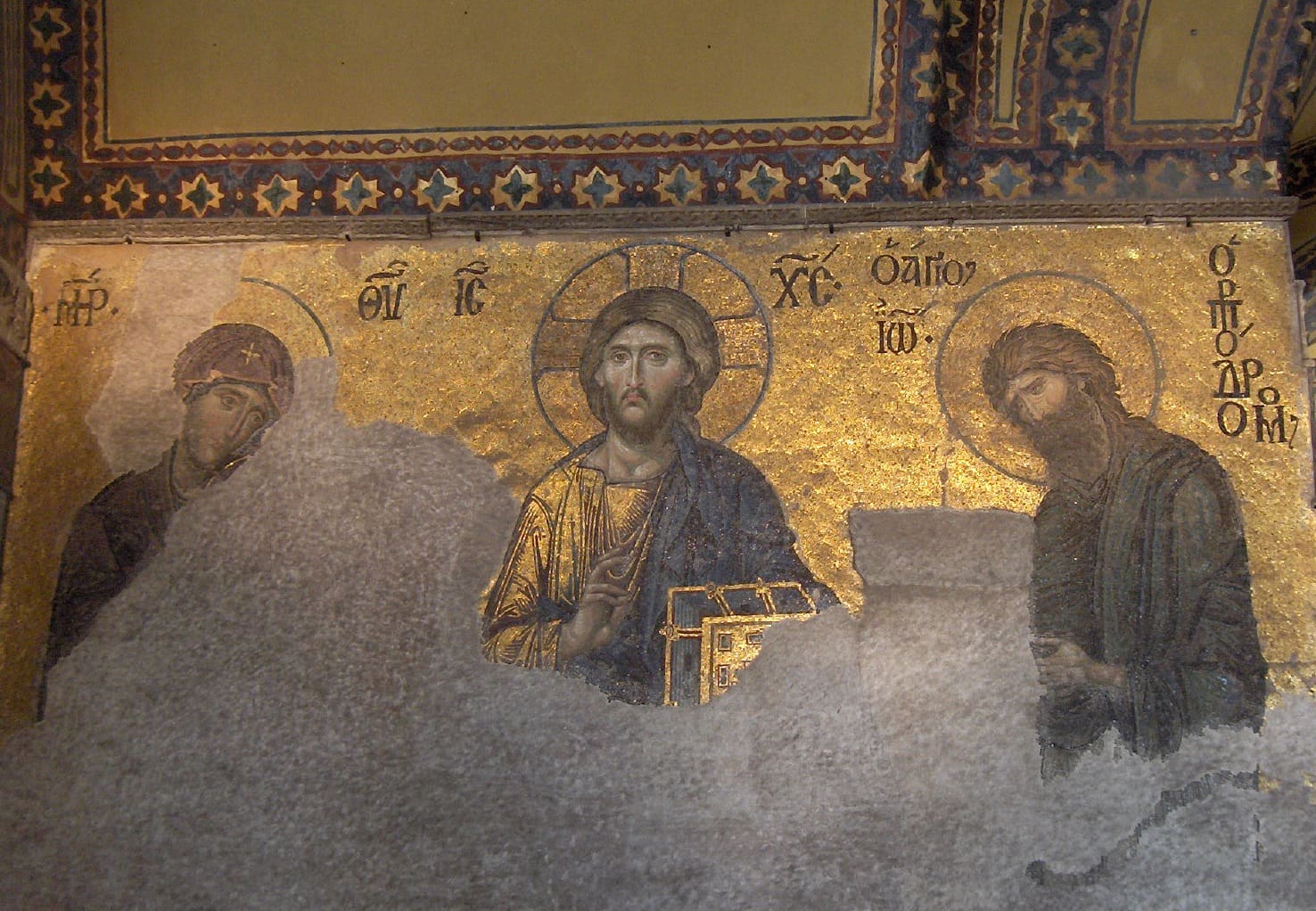As we approach the celebration of Holy Week, it is impossible not to remember that a year ago we experienced an unthinkable Paschal Triduum in lockdown, without the presence of an assembly at the most solemn and beautiful liturgies of the year. I am sure I am not the only one for whom the very memory of this brings back the pain and confusion of those days. As a pastor, I saw that the suffering of my parishioners who could not be there for those great liturgies was definitely present throughout all the celebrations. And yet, the silence of an empty church became—by God’s goodness—the occasion to realize, more than ever, what it means to be a priest: to offer sacrifice for those entrusted to me, and to intercede for them. How mysteriously close we were those days!
The echo of the empty pews was also the setting to remember that the truth of the celebrations was not diminished by the unusual circumstances: the Lord was, in fact, giving his life for us, the very few serving at the altar, the many who were praying at home, and also those who were indifferent to the sacredness of those holy days. The Lord indeed suffered, died, and rose for all of us.
As I look back on Holy Week 2020 and look forward to Holy Week 2021, I take comfort in knowing that we have been here before—that sacred scripture, the Church fathers, and some of the greatest saints have all understood the need to encounter Christ through the liturgy, a need which is whetted by its absence and satisfied in its consummation.
Emerge from Darkness…
Needless to say, the months leading to this year’s upcoming Holy Week have not been easy. With Job we can say, “I have been assigned months of misery; our hearts have been filled with restlessness” (Job 7:3-4). However, the injustices and polarization, the judgements and confusion that we all experience these days are an opportunity to realize that the world—and our hearts—need redemption. This long Lent of our history, if embraced with peace, can prepare us for the celebration of Holy Week in a deeper way than when we are comfortable and at ease.
This long Lent of our history, if embraced with peace, can prepare us for the celebration of Holy Week in a deeper way than when we are comfortable and at ease.
Look Toward the Light…
St. John Henry Newman said in his famous “Second Spring” sermon, “If we must escape the present ills it must be by going forward.” I think and hope that this Holy Week can mark for all of us a moment to move on, to stop spending our energies in lamenting the present ills and to escape them not by denying them but by searching the answer for them in God. That is the meaning of going forward: “I will go to the altar of God, to the God of my exceeding joy” (Psalm 43:4). I long for a celebration of the Triduum in which we will encounter with renewed hearts the salvation brought by the sacrifice of Christ. Holy Week a year ago was lived in a different and altogether special way. If anything, the faithful, being far from their churches and fellow parishioners, were certainly provided an occasion to desire what so many times is taken for granted. This Holy Week has to be marked by a fresh desire. As St. Augustine preached in a homily, “God stretches our desire through delay, stretches our soul through desire, and makes it large enough by stretching it. Let us desire then, brothers, for we have to be filled” (Homilies on the First Epistle of St. John, 4,6). This year, with stretched souls, we all should dare to desire, for we hope to be filled.
As soon as we began to think and work on the different aspects of Holy Week at the parish, I realized that there will be a number of practical considerations still unique to this difficult time. And yet, gratefully, all the challenges are marked by a joyful expectation: being together as a parish during the holiest days of the year. In an Easter letter St. Athanasius said to his people, “This is the wonder of his love: he gathers to this feast those who are far apart, and brings together in unity of faith those who may be physically separated from each other.” (Epistle 5,2) Last year we were physically separated from one another; this year we will be gathered together. But, of course, this physical closeness is not the main goal. I believe that this Holy Week is an occasion for all of us to let the wonder of Christ’s love bring together our minds and hearts, letting his sacrifice heal any wound and division.

Image Source: L’Osservatore Romano
The hope of being together for the sacred liturgies of the Triduum makes me desire to celebrate them with all solemnity, with all love, and with all reverence. This joyful expectation reminds me of how St. Justin described the early Eucharist, in which the priest is called to pray “according to his ability” (1 Apology 67), or of the quantum potes, tantum aude (“as much as you can, dare that much”) of St. Thomas Aquinas. This upcoming, unique Holy Week is an invitation for us priests to try to pray for and with our people to the best of our ability, to dare to praise God as much as our hearts are capable of.
Move Into the Light…
Now, to be clear, this desire to adore and pray more is, first and foremost, a matter of quality rather than of quantity; it is about the depth that comes from the awareness of the truth of the celebrations. As such, rather than aiming for solemn liturgies because this year people will be physically present, it is the fact that we will be together that offers us the occasion to dare to love and adore the Lord with special joy and renewed strength.
As such, I look forward to being united in gratitude for and veneration of the gift of the Eucharist, accompanying together Jesus in his agony. I look forward to presenting the Holy Cross for loving adoration on Good Friday to hearts awake and open to the new life obtained by the death of Christ. I look forward to the meaningful silence of Holy Saturday, gathered as a community around our Blessed Mother, expecting with hope the fulfillment of the promises. I look forward to hearing the Exsultet resound in the echo, not of empty pews, but of joyful hearts, and humbly giving my voice to Christ to consecrate the water that will give the life of the resurrection to those who will be baptized during the Easter Vigil.
I look forward as well to realizing with my people just how real these liturgies are; how much truth is fulfilled in those humble and glorious words and gestures through which Christ, Head and Body, renews his great works; how patently the work of our redemption comes to us in this day of our history, so marked by darkness, so deeply in need of the light of Easter. I look forward to hearing as a community the ever ancient and ever young voice of Mother Church singing the ultimate paradox, more current today than ever, “O happy fault that earned so great, so glorious a Redeemer!” All our suffering truly becomes the occasion for a uniquely meaningful and fruitful Holy Week. “O wonder of your humble care for us! O love, O charity beyond all telling, to ransom a slave you gave away your Son! O truly necessary sin of Adam, destroyed completely by the Death of Christ!”
This is the wonder of his love: he gathers to this feast those who are far apart, and brings together in unity of faith those who may be physically separated from each other.
–St. Athanasius, Epistle 5,2
And Let There Be Light!
The Easter Vigil of 2020 was marked, quite symbolically, by the omission of the lucernarium—the rites surrounding the holy fire. Even in the few places in which a fire was blessed, there was still a painful absence: the moving view of a completely dark church slowly being filled with light as each member of that portion of the Body of Christ which is a parish, is illuminated by a taper lit from the Easter Candle. Perhaps if I had to choose one moment of the upcoming Paschal Triduum that I am particularly looking forward to as a pastor, I would say it is seeing how the love of Christ overcomes the darkness and coldness of our wounded world. I hope to feel the warmth of that blazing fire along with my parishioners; I long to see my church being filled with the light of Christ shared with each of those friends who will be celebrating together the resurrection; I desire to experience as a community the power of that Holy Night.
St. Augustine said it beautifully at an Easter Vigil celebrated 1,600 years ago: “The sun has gone but not the day, for a shining earth has taken the place of the shining sky. With delighted eyes we behold the gleam of these lamps, and thus, with an illuminated spirit, we can understand the meaning of this shining night” (Sermon Guelferbytanus 5,1–2, cited in Van der Meer, Augustine the Bishop, 323). My sincere hope is that 2021’s unique celebration of the Paschal Triduum can bear a unique fruit in all of us, allowing us to see that the darkness we have experienced in recent times is overcome by the victory of Christ, whose light gives us the “meaning of this shining night.”


